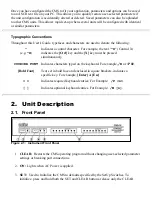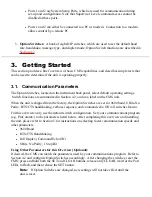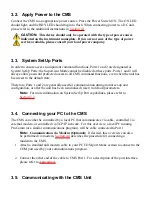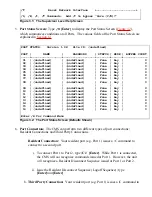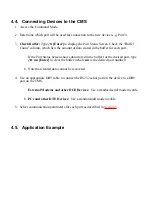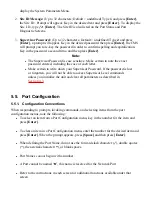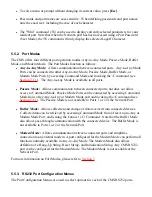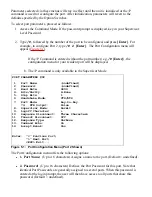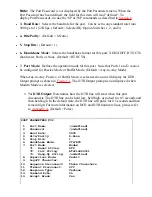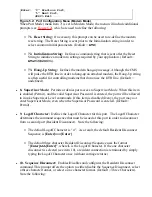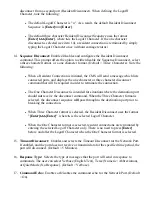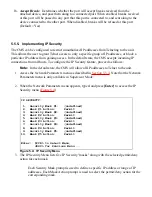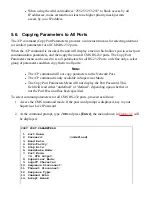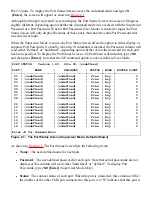
Modem Access: To access the command mode via modem, proceed as follows:
Dial the number for the external modem connected to the CMS.
i.
If you have defined the Supervisor Password, a prompt will be displayed.
Key in your Supervisor or Port password and press [Enter]. If the Supervisor
Password has not been defined, just press [Enter]. The "CMS>" prompt will
appear.
ii.
b.
Network Access: In order to access the CMS command mode via network, the IP
Address, Subnet Mask and Gateway Address must first be defined. Therefore,
network access is not available during initial configuration.
After Network Port Parameters are assigned as described in
Section 5.5.3
, the user
may connect to the CMS via network using the following procedure:
Telnet to the CMS's IP Address. For example, if the IP Address is
"192.1.1.1", on a UNIX system, the Telnet command would be invoked as
follows:
$ telnet 192.1.1.1
[Enter]
i.
Note that if the Telnet connection to the CMS is refused, this probably means
that the network port is busy, or that the IP Security feature has denied the
connection.
ii.
If the Supervisor Password has been defined, the password prompt will be
displayed. Key in your Supervisor or Port password and press [Enter]. The
CMS will display the Port Status Screen, and then the "CMS>" prompt will
appear.
iii.
c.
5.2. System SetUp Ports
As discussed previously in
Section 3
of this User's Guide, Ports 1 and 2 are designated as System
SetUp Ports. Ports 1 and 2 will always permit password protected access to Supervisor Level
command functions, even when the unit is reset to default parameters.
In order to ensure that access to command functions is always available, Ports 1 and 2 cannot be
configured as Buffer Mode or Passive Mode Ports. Buffer and Passive Mode Ports are not able
to access the Command Mode. In addition, Ports 1 and 2 always permit password protected
access to Supervisor Level commands; the Supervisor Mode cannot be disabled at these two
ports.


